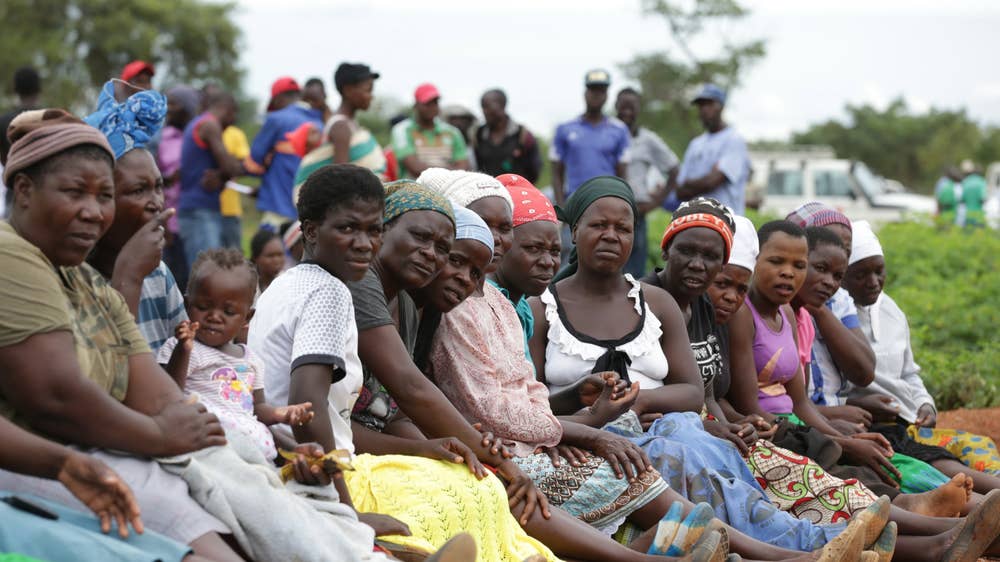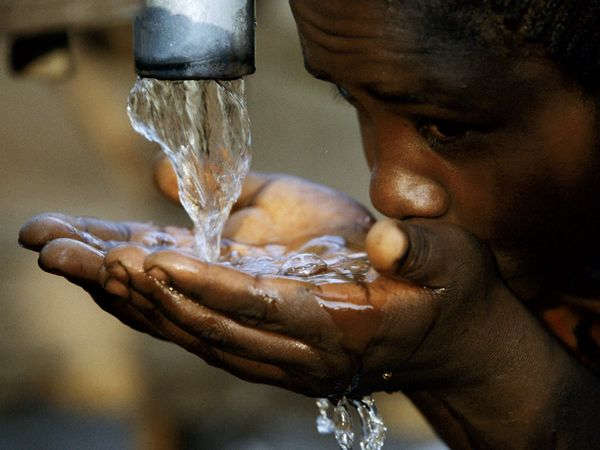More than two million residents of Zimbabwe‘s capital and surrounding towns have been left without water after officials closed the city’s main treatment plant.
The move has raised new fears about water-borne diseases after a recent cholera outbreak.
Authorities in Harare have struggled to raise foreign currency to import water treatment chemicals – about £2.1m is needed per month – and water levels in polluted dams are dropping after several months of drought.
“Everyone living in Harare is affected, they don’t have water,” city council spokesman Michael Chideme said as residents turned to options such as bottled water or wells. “Maybe the situation will be resolved by tomorrow but we are not sure,” he added.
Harare City Council’s deputy mayor Enock Mupamawonde told reporters: “[The shutdown] is due to the non-availability of foreign currency … it is devastating to say the least.”

He urged president Emmerson Mnangagwa’s government to declare the water crisis a national disaster.
The drought, brought on by the El Nino weather phenomenon, has devastated crops and will likely leave up to five million Zimbabweans in need of food aid, the United Nations said in August.
Tanzania announced on Friday it had sent the first shipment of what will constitute 700,000 tonnes of maize in emergency food relief.
The capital frequently records cases of disease such as typhoid due to water shortages and dilapidated sewer infrastructure. Some residents are forced to get water from shallow, unsafe wells and defecate in the open.
The Associated Press earlier this month watched some residents pump water then wait half an hour for enough water to seep into the well to pump again.
Last year 26 people died in a cholera outbreak, leading president Emmerson Mnangagwa to express public dismay that Zimbabweans were suffering from a “medieval” disease.
The country was once a bright spot in southern Africa and a regional breadbasket but the economy has collapsed in recent years, and foreign currency is hard to come by.
Source: Independent.co.uk




